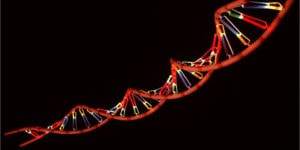
DNA
Scientists at the University of Manchester have developed a new type of self-replicating computer that uses DNA to make calculations, a breakthrough that could make computing far more efficient.
Computing with DNA was first proposed in 1994 as a way to solve problems faster than with normal computers. DNA has a number of advantages over silicon that makes it ideal for problem solving, namely that it’s extremely small and highly stable.
But the biggest advantage of DNA is that it can copy itself. In computing terms, this means that a DNA computer can run an arbitrary number of calculations at the same time, which is very important for solving complex problems. While a typical computer might have to do a billion calculations one after another, a DNA computer can just make a billion copies of itself and do all the calculations at once.
In fact, that’s just what the University of Manchester researchers did with their DNA computer. Theirs is the first physical […]











Wild and interesting!